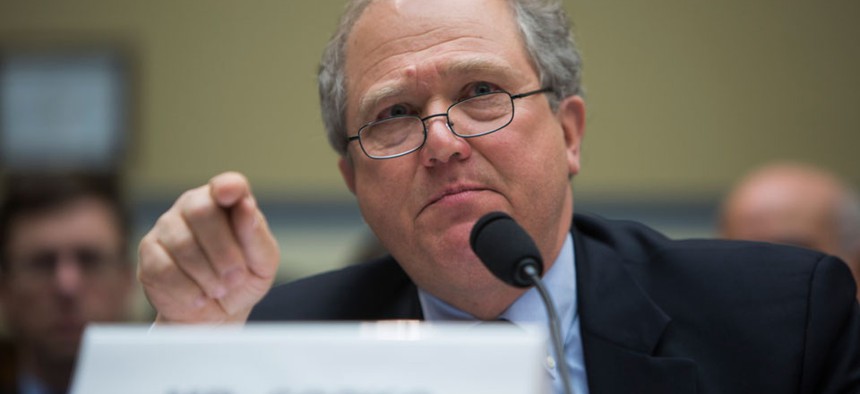
A report from IG John Sopko stated, “IDLO has faced high leadership turnover and budgetary shortfalls that, according to IDLO’s Audit and Finance Committee, raise serious questions about the future sustainability of the organization.” SIGAR
State Department Faulted for Lax Oversight of Afghanistan Justice Contract
Special inspector general says $223 million program may not be sustainable.
U.S. efforts to exit Afghanistan with a sustainable rule of law infrastructure in place may be jeopardized by “weaknesses in the design and oversight” of justice-sector contracts, an audit has found.
State Department contracts totaling $223 million to help train Afghani justice administrators, prosecutors, attorneys and case managers suffered from requirements that “were poorly defined, resulting in ‘useless’ deliverables,” as well as expenses that are difficult to track, according to the audit report, released Friday by the Special Inspector General for Afghanistan Reconstruction.
Last July, the IG, John Sopko, warned Secretary of State John Kerry of such problems in a similar report questioning a $47.8 million contract awarded on a sole-source basis to the Rome-based International Development Law Organization. The original goal was to have the program fully implemented in all of war-torn Afghanistan’s 34 provinces by May 2012, but the plan was later scaled back to seven.
State’s ability to oversee the contractor was limited under the contract, SIGAR noted in the new audit. “According to a State official,” the report stated, “IDLO has faced high leadership turnover and budgetary shortfalls that, according to IDLO’s Audit and Finance Committee, raise serious questions about the future sustainability of the organization.”
Though State planned to rely on self-reporting by the contractor, SIGAR said it disagreed with the department that “self-reported information is an adequate substitute for State protecting the authority of the U.S. government to access all records related to how $47.8 million in taxpayer funds will be spent.”
State officials agreed with most of SIGAR’s recommendations that it renegotiate the IDLO contract and a related contract to “secure the right of the U.S. government to audit and inspect” the contractor’s records. But in a letter to SIGAR, James Dobbins, State’s special representative to Afghanistan and Pakistan, and William Brownfield, assistant secretary of State for international narcotics and law enforcement affairs,” said, “We are confident that we have adequate and appropriate oversight mechanisms built into our letter of agreement with this public international organization. Because of our collective efforts, we believe that the government of Afghanistan now has the ability to deploy at least a minimally adequate and functioning system that will effectively support continuing reform past the 2014 military transition.”
The report’s conclusions were embraced by Sen. Claire McCaskill, D-Mo., chairman of the Senate Homeland Security and Governmental Affairs Subcommittee on Financial and Contracting Oversight, who requested the report.
“When you have contractors utterly failing to meet goals, and then going back retroactively and changing those goals to make it seem like they succeeded, you’ve got a major problem,” McCaskill said. “Unfortunately, waste, fraud, and abuse has too often been the result when it comes to the billions we’ve spent in Afghanistan, and the State Department needs to take action immediately to implement safeguards over these contracts.”







